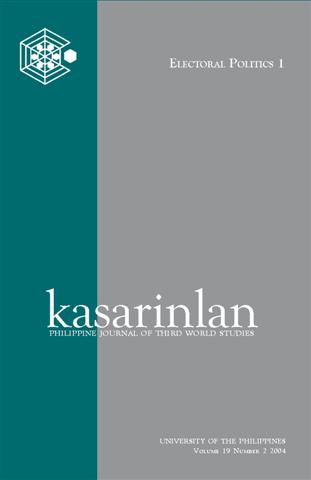The 2004 General Elections and the Virtues of Indonesian Presidentialism
Abstract
The 2004 general elections in Indonesia highlighted the importance of what Linz refers to as “dual democratic legitimacy” (a political situation in which both the president and the parliament are elected directly by the people) and its relevance in examining the virtues of Indonesian presidentialism. It is argued here that Indonesian presidentialism has been redefined to the extent that the political and constitutional boundaries between the president and the parliament are clearly demarcated and guarded through various means. One cannot replace the other, both sides have to critically work with each other. Each of them is responsible to their own constituents. Indonesian presidentialism is still developing and will continue to be tested in years to come. In the 2004 general elections, relying only on party machinery to win the elections was no longer sufficient because voters now increasingly assess the candidates on the visions, ideas and programs presented in their election campaigns. However, with general elections becoming regular and institutionalized the use of money or financial rewards to gain votes in elections will be an issue that political parties, party leaders and voters will have to address. These are some of the trends developing in Indonesian politics which are likely to shape Indonesian presidentialism in the years ahead.
Published
2007-11-17
Section
Articles
Keywords
elections; Indonesia; presidentialism
By submitting a manuscript, the authors agree that the exclusive rights to reproduce and distribute the article have been given to the Third World Studies Center.



